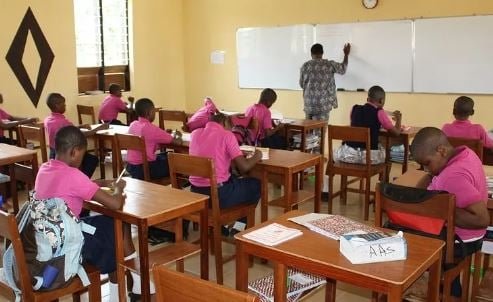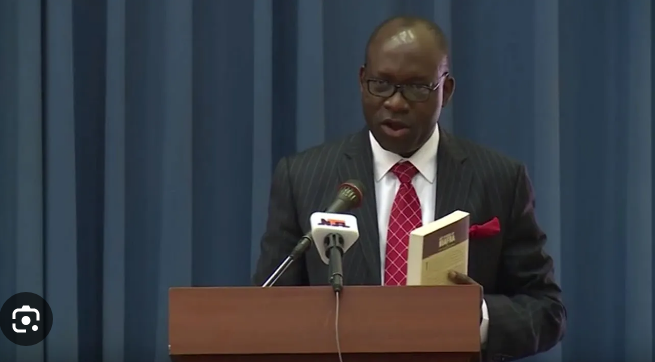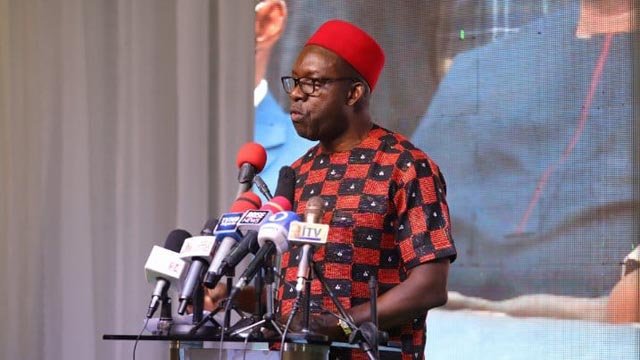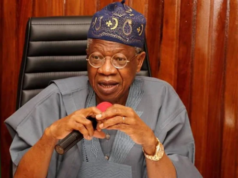Anambra State Governor, Professor Chukwuma Charles Soludo, has once again drawn national attention — this time with a passionate call for comprehensive educational reforms in Nigeria. Speaking at a public event on Sunday, Soludo stressed that the country’s education sector has suffered from years of neglect, underfunding, and outdated practices that no longer prepare young Nigerians for a rapidly changing world.
According to him, “education should not be treated as a charity project but as a strategic investment in Nigeria’s future.” He argued that without radical changes, the system will continue to produce graduates ill-equipped for the modern economy, further deepening unemployment and inequality.
The former Central Bank Governor noted that Nigeria’s development cannot outgrow the quality of its human capital. He urged leaders across all levels of government to “sit up and take ownership” of the country’s failing education system rather than leave it to chance or short-term political interventions.

Table of Contents
Exposing the Cracks: What’s Wrong with Nigeria’s Education
Soludo’s comments echo a sentiment widely shared by parents, teachers, and policy experts — that the Nigerian education system is at a breaking point. He pointed out several long-standing problems that have turned the nation’s schools into “factories of frustration” instead of centres of innovation.
Top among these issues are dilapidated infrastructure, poor teacher training, inconsistent curricula, and a widening gap between education and employability. He lamented how thousands of Nigerian children study in overcrowded classrooms without access to digital tools or even basic learning materials.
Equally troubling, Soludo observed, is the outdated curriculum that fails to match the realities of today’s job market. “Our children are learning subjects that have little connection to the modern economy,” he said. “Education must evolve from rote learning to skills that prepare young Nigerians for technology, creativity, and problem-solving.”
He also criticised the “exam-centred” culture that values certificates over competence. In his words, “We have turned education into a race for paper qualifications rather than a journey of knowledge and empowerment.”

Soludo’s Vision: A Reform Blueprint for Nigeria
Going beyond diagnosis, Soludo proposed a comprehensive reform model built on four key pillars — policy coherence, teacher development, adequate funding, and technology integration.
1. Policy Coherence:
He called for alignment between federal and state policies to avoid duplication and confusion. In his view, Nigeria needs a unified national education framework that sets minimum standards while allowing states some flexibility to innovate. This, he said, would create a shared vision and accountability structure.
2. Teacher Development and Welfare:
Soludo described teachers as the “backbone of education reform.” He urged governments to make teaching attractive again through better pay, professional training, and continuous development. “You cannot give what you do not have,” he emphasised. “If we want quality students, we must first invest in quality teachers.”
3. Adequate and Transparent Funding:
He pushed for education budgets that reflect the sector’s true importance. Nigeria, he argued, must increase its education spending and ensure funds are used transparently. Soludo also encouraged partnerships with the private sector, alumni associations, and international organisations to strengthen resource mobilisation.
4. Embracing Technology and Innovation:
Finally, he called for integrating digital tools into classrooms, starting from the basic education level. “Technology can help us leapfrog decades of inefficiency,” he said, citing Anambra’s ongoing digitisation of school records and teacher training modules as an example.
Soludo’s approach, he explained, is not merely about building more schools but creating systems that inspire learning, innovation, and equity. He believes education must prepare Nigeria’s youth for self-reliance, entrepreneurship, and global competitiveness.

A National Wake-Up Call: Building the Future Together
Soludo’s message resonated with many Nigerians who see education as the key to unlocking the country’s economic and social transformation. Analysts have noted that his call for reform could not have come at a better time, as the nation grapples with youth unemployment, brain drain, and declining global competitiveness.
However, implementing such reforms will require political courage and collaboration among federal, state, and local governments. Experts warn that without consistent follow-up and clear accountability, such calls may end up as another lofty policy statement lost to bureaucracy.
In response to questions about sustainability, Soludo acknowledged that education reform is not a quick fix. “We need a 10 to 20-year master plan that survives political cycles,” he said. “Every new government must see itself as part of a continuing process, not a replacement of the old.”
Education stakeholders, including teachers’ unions and parent associations, have expressed support for Soludo’s stance. They believe his background as an economist and public policy expert gives him a clear understanding of how education connects to national productivity.
As Nigeria continues its search for solutions to unemployment, insecurity, and poverty, Soludo’s message stands out: investing in education is the most strategic way to secure the nation’s future.
“Education is not just about classrooms and certificates,” he concluded. “It is about raising citizens who can think, innovate, and build the Nigeria of our dreams.”
Join Our Social Media Channels:
WhatsApp: NaijaEyes
Facebook: NaijaEyes
Twitter: NaijaEyes
Instagram: NaijaEyes
TikTok: NaijaEyes
READ THE LATEST EDUCATION NEWS




